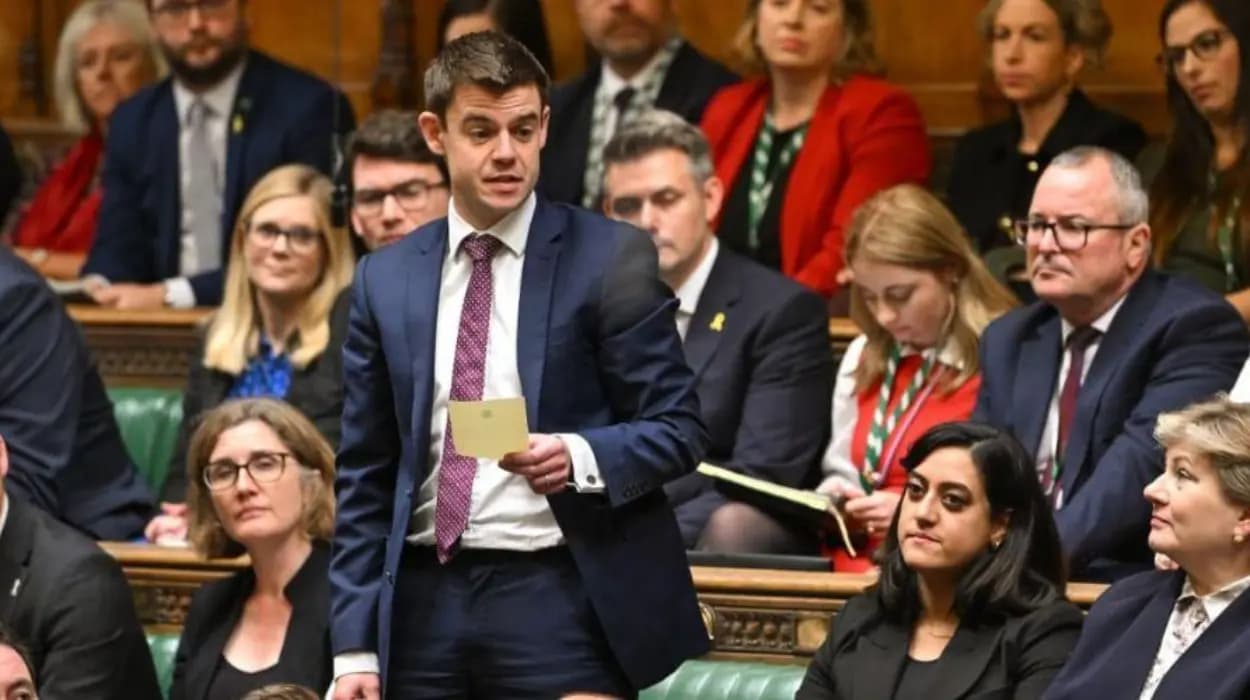Key Points
- · An MP representing Bolton has publicly claimed that some shops on Bolton's high streets are being used as fronts, raising concerns about the town's retail health and crime.
- · The MP highlighted the dire economic situation in Bolton, referencing long-term council budget cuts and the departure of major retailers.
- · The government's levelling-up funding and regeneration efforts were discussed, with criticism over the allocation and effectiveness of such programmes in Bolton.
- · The MP called for reforms in council funding and property management, including compulsory purchase orders to address boarded-up and derelict properties.
- · A new pilot safety haven scheme for Bolton’s night-time economy was introduced as a preventive measure to keep the area safe and vibrant.
- · The night-time economy is seen as a significant factor in regeneration and community support but requires better safety and investment.
What has the MP said about shops being used as fronts on Bolton’s high streets?
As reported by an MP representing Bolton in a recent public statement via social media and direct community engagement, there is no shying away from the fact that some shops on Bolton’s high streets are used as fronts. This allegation highlights growing concerns about the nature of certain businesses operating under the guise of legitimate retail establishments. The MP did not name specific shops but indicated this trend contributes to a broader set of challenges facing Bolton’s town centre and high street economy.
The MP emphasized the significance of addressing these issues head-on to protect the integrity of local businesses and create a safer, more prosperous shopping environment for residents and visitors.
How is Bolton’s economic and retail situation described by the MP in Parliament?
In a detailed debate at Westminster Hall on 7 February 2023, as documented by the Government Parliament records and reported by journalists covering the session, the MP outlined the economic difficulties faced by Bolton South East, ranked as the 38th most deprived constituency in the UK. The MP lamented the visible boarded-up shops, derelict properties, and lost business opportunities on Bolton’s high streets.
Key retailers such as Marks & Spencer have closed, while chains like Argos, HMV, and Debenhams had withdrawn from the town centre, leaving gaps that degrade public perception and footfall. The MP stressed the need for government support, lamenting that Bolton’s levelling-up funding bids had been unsuccessful or insufficient, particularly pointing to late submissions and governmental prioritization of wealthier areas.
What regeneration plans and funding issues were raised?
The MP called for greater government investment to support Bolton’s regeneration. They urged the responsible government minister to clarify the principles guiding levelling-up fund distribution, highlighting the stark contrast between Bolton’s needs and funding awards to affluent constituencies. A £19 million levelling-up fund earmarked for vital developments like a conference hotel and other town centre facilities had not materialized, which the MP described as a missed lifeline.
Proposals were discussed for converting empty mills into mixed-use properties, blending housing, business spaces, and public parks to revitalise the industrial heritage site. The MP also praised forthcoming council powers proposed in the Levelling-Up and Regeneration Bill to enable rental auctions, permanent al fresco dining, and easier issuance of compulsory purchase orders—to reactivate properties left empty and disused.
What role does the night-time economy play in Bolton’s recovery?
The MP highlighted the importance of Bolton’s night-time economy, particularly for young people, students, and the local culture. They mentioned meetings with the Greater Manchester Combined Authority’s night-time adviser, Sacha Lord, to develop best-practice nightlife models.
Bolton’s pilot safety haven scheme, set to launch shortly, was described as a key initiative providing resting places, charging points, paramedic access, and mental health support for night-time visitors, thereby enhancing public safety and reducing emergency service burdens.
Why is local council funding and reform important according to the MP?
Since 2010, Bolton’s council has faced £250 million in budget cuts, which the MP argued severely constrains the council’s ability to support the high street and wider community effectively. They contend that government investment alone is insufficient without systemic reform, pushing for a more sustainable funding model and empowered local government powers to address long-term regeneration challenges.
The MP welcomed the Levelling-Up and Regeneration Bill that aims to revolutionize investment partnerships between government, private sector, and charities, while giving councils more tools to manage properties and revive the high street.
What is the current public and media reaction to these claims?
While no specific investigations into the alleged use of shops as fronts have been publicly detailed, these claims add fuel to ongoing debates about crime, economic decline, and the health of retail on Bolton’s high streets. Local media including The Bolton News and online community forums reflect both concern and calls for more robust official action to safeguard the town centre’s future.
What is the overall outlook for Bolton high street according to stakeholders?
Stakeholders acknowledge the complex challenges facing Bolton—from economic deprivation and retail vacancies to safety and council funding constraints. However, the emphasis remains on regeneration through joint efforts involving government funding, local authority reforms, and community-led initiatives.
The night-time economy, innovative use of historic buildings, and safety improvements form a cornerstone of the vision for a vibrant, thriving high street that supports independent businesses and enhances community life.
